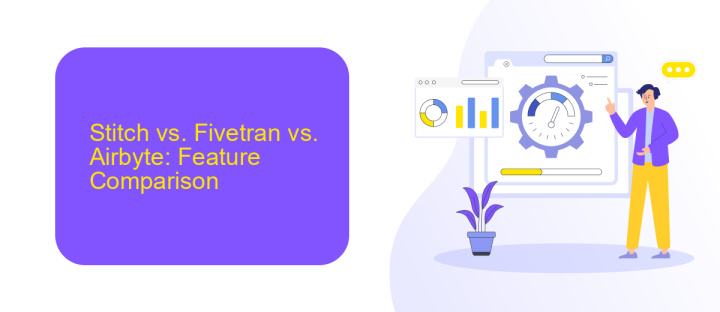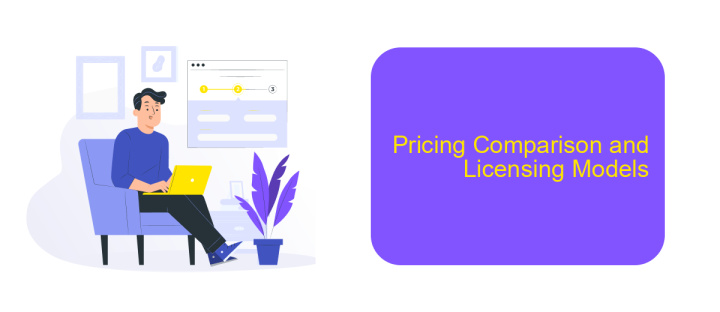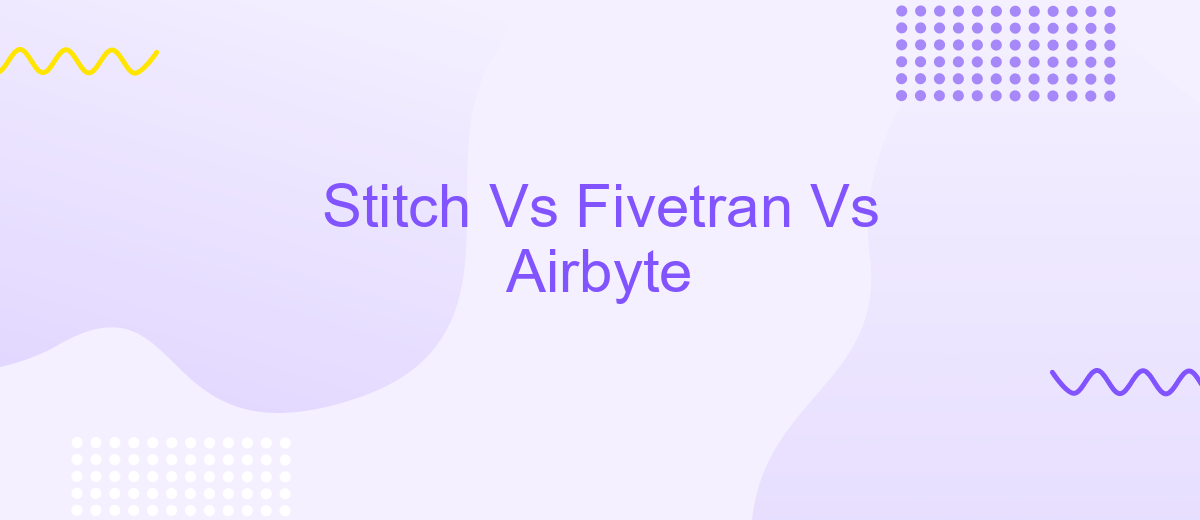Stitch Vs Fivetran Vs Airbyte
In the rapidly evolving landscape of data integration, choosing the right tool is crucial for ensuring seamless data flow across systems. This article compares three leading solutions: Stitch, Fivetran, and Airbyte. We'll explore their features, strengths, and weaknesses to help you make an informed decision on which platform best suits your organization's data integration needs.
Overview of ETL Tools
ETL (Extract, Transform, Load) tools are essential for modern data management, enabling organizations to efficiently move and transform data from various sources to a centralized data warehouse. These tools streamline the process of data integration, ensuring that businesses can derive valuable insights from their data.
- Stitch: A simple and powerful ETL tool that focuses on data extraction and loading, supporting a wide range of data sources.
- Fivetran: An automated data integration tool that offers pre-built connectors and seamless data pipeline management.
- Airbyte: An open-source ETL platform that allows for customization and scalability, catering to diverse data integration needs.
Additionally, services like ApiX-Drive can further simplify the integration process by offering user-friendly interfaces and automation for data workflows. These tools and services collectively enhance the efficiency and reliability of data operations, enabling businesses to focus on data analysis and decision-making.
Stitch vs. Fivetran vs. Airbyte: Feature Comparison

When comparing Stitch, Fivetran, and Airbyte, it's essential to consider their features. Stitch offers a straightforward, user-friendly interface with a focus on simplicity and ease of use, making it ideal for smaller teams or startups. Fivetran, on the other hand, emphasizes automation and reliability, providing robust data pipelines with minimal maintenance. It supports a wide range of data sources and destinations, ensuring seamless integration for large-scale enterprises. Airbyte stands out with its open-source model, allowing for extensive customization and community-driven improvements. This flexibility makes it a strong choice for organizations with unique data integration needs.
In addition to these core features, services like ApiX-Drive can further enhance the integration process. ApiX-Drive simplifies the setup of data connections between various platforms, offering an intuitive interface and extensive support for different APIs. This can be particularly beneficial for businesses looking to streamline their workflows without extensive technical expertise. By leveraging ApiX-Drive alongside Stitch, Fivetran, or Airbyte, companies can achieve more efficient and reliable data integrations tailored to their specific requirements.
Advantages and Disadvantages of Each Tool

When comparing Stitch, Fivetran, and Airbyte, each tool offers unique advantages and disadvantages that cater to different integration needs.
- Stitch:
- Advantages: Easy to set up, supports a wide range of data sources, and offers a free tier for small data volumes.
- Disadvantages: Limited customization options, can become expensive with larger data volumes, and lacks advanced transformation features.
- Fivetran:
- Advantages: Fully managed service, automatic schema migrations, and robust data security features.
- Disadvantages: Higher cost, limited control over data transformations, and may require additional tools for complex integrations.
- Airbyte:
- Advantages: Open-source, highly customizable, and supports a wide range of connectors.
- Disadvantages: Requires more technical expertise to set up, less polished user interface, and community-driven support.
For those seeking a more user-friendly approach to integration without extensive technical knowledge, services like ApiX-Drive can offer a simpler solution with a wide range of supported connectors and automated workflows.
Pricing Comparison and Licensing Models

When comparing the pricing and licensing models of Stitch, Fivetran, and Airbyte, it's essential to consider your specific needs and budget constraints. Each platform offers different pricing structures and licensing options to accommodate various business requirements.
Stitch operates on a consumption-based pricing model, charging based on the volume of data replicated. Fivetran, on the other hand, employs a tiered pricing model, which scales with the number of connectors and data volume. Airbyte stands out with its open-source model, allowing users to self-host for free or opt for a managed service with a subscription fee.
- Stitch: Consumption-based pricing
- Fivetran: Tiered pricing
- Airbyte: Open-source with optional managed service
For businesses looking to streamline their integration processes, services like ApiX-Drive can be invaluable. ApiX-Drive offers a user-friendly interface to set up and manage integrations efficiently, complementing the capabilities of Stitch, Fivetran, and Airbyte. By leveraging such services, companies can optimize their data workflows while managing costs effectively.
Case Studies and Customer Reviews
Stitch has been praised by small to mid-sized companies for its ease of use and quick setup. A notable case study involves a growing e-commerce business that managed to streamline its data integration process within a week, significantly reducing manual labor. Customer reviews highlight Stitch’s straightforward interface and reliable performance, although some users have pointed out limitations in customization options.
Fivetran, on the other hand, is favored by larger enterprises for its robust, automated data pipelines. A prominent case study features a multinational corporation that leveraged Fivetran to unify data from multiple sources, enhancing their analytics capabilities. Customers appreciate its hands-off maintenance and extensive connector library. However, some reviews mention the higher cost as a potential drawback for smaller businesses.
Airbyte stands out with its open-source model, attracting tech-savvy companies that prefer customizable solutions. A tech startup utilized Airbyte to tailor their data integrations, achieving a high level of flexibility. Reviews commend its adaptability and community support, though some users note the initial setup can be complex. For those seeking additional integration assistance, services like ApiX-Drive can provide valuable support in configuring and managing these tools effectively.
FAQ
What are the primary differences between Stitch, Fivetran, and Airbyte?
Which service is best for small businesses?
How do these services handle data security?
Can these services integrate with any data source?
Is there an alternative for automating and configuring integrations without technical expertise?
Routine tasks take a lot of time from employees? Do they burn out, do not have enough working day for the main duties and important things? Do you understand that the only way out of this situation in modern realities is automation? Try Apix-Drive for free and make sure that the online connector in 5 minutes of setting up integration will remove a significant part of the routine from your life and free up time for you and your employees.

